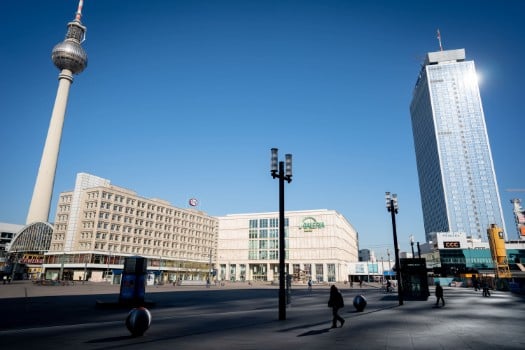The city says that people at the bar, which is situated directly under the TV Tower on Alexanderplatz, came from several cities around the country.
They are particularly interested in people who were inside between the hours of 9pm and 3am the next morning.
At least 10 people who went to the bar have tested positive for the novel coronavirus.
People who were at the bar on that evening are asked to get in touch with the health authority in Berlin Mitte or to contact their own local health authority.
Strict rules
Since June, bars and pubs have been allowed to reopen in Berlin. As is the case with restaurants, operators must have a plan in place to ensure distancing, hygiene and contact tracing.
READ ALSO: From bars to gyms: What's reopening in Berlin in June?
According to the Robert Koch Institute (RKI), German health authorities have reported 569 new coronavirus infections within the past 24 hours.
This means that 203,368 people in Germany have been infected with the virus since the beginning of the crisis. The RKI estimates that 189,000 people have recovered.
According to data from Johns Hopkins University, there have been a total of 8,860 coronavirus cases in Berlin, 8,356 who have reported to recovered.
A total of 9,101 people who tested positive for the Sars-CoV-2 virus have died. These figures suggest that some 5,267 people are currently infected in Germany.



 Please whitelist us to continue reading.
Please whitelist us to continue reading.
Member comments